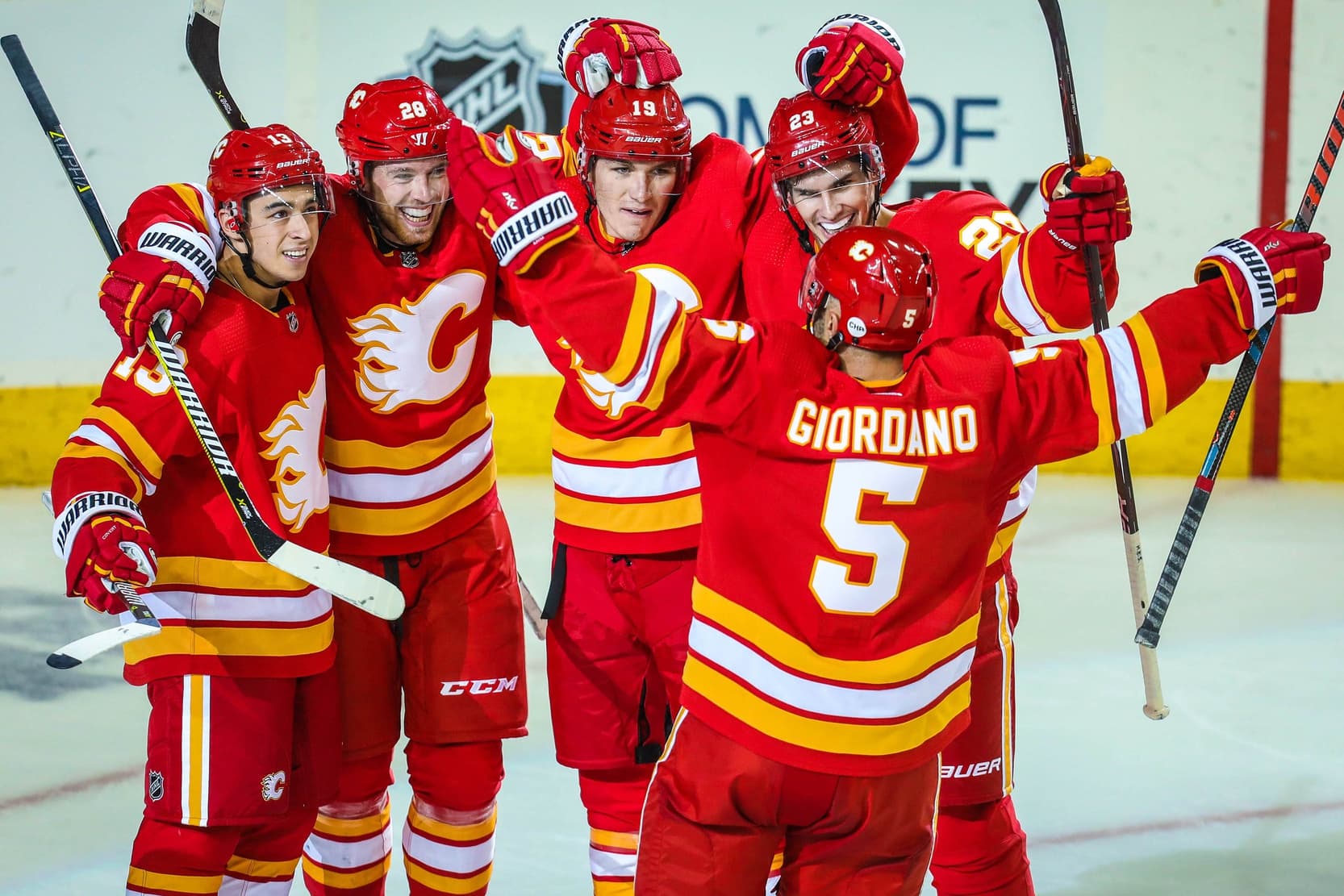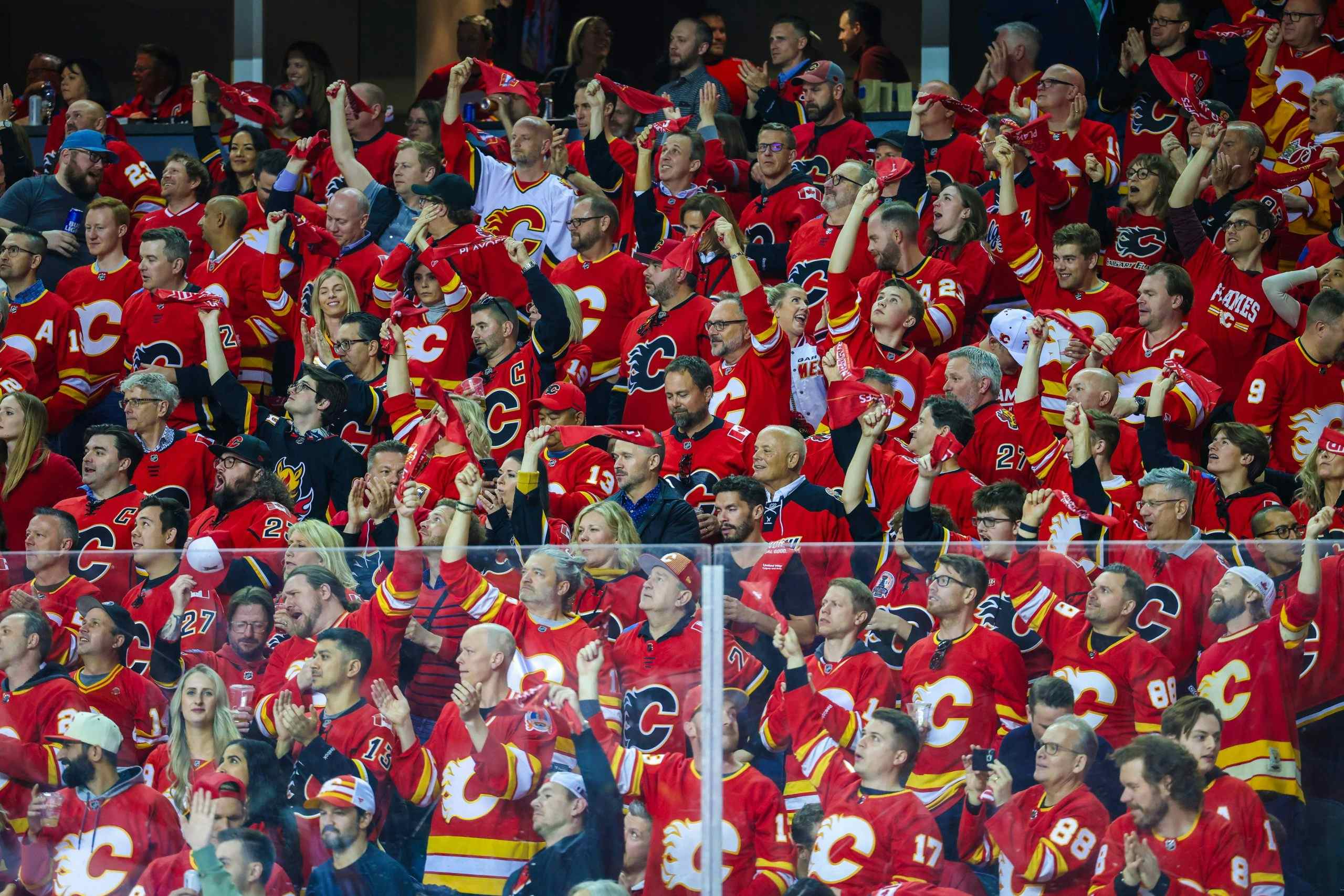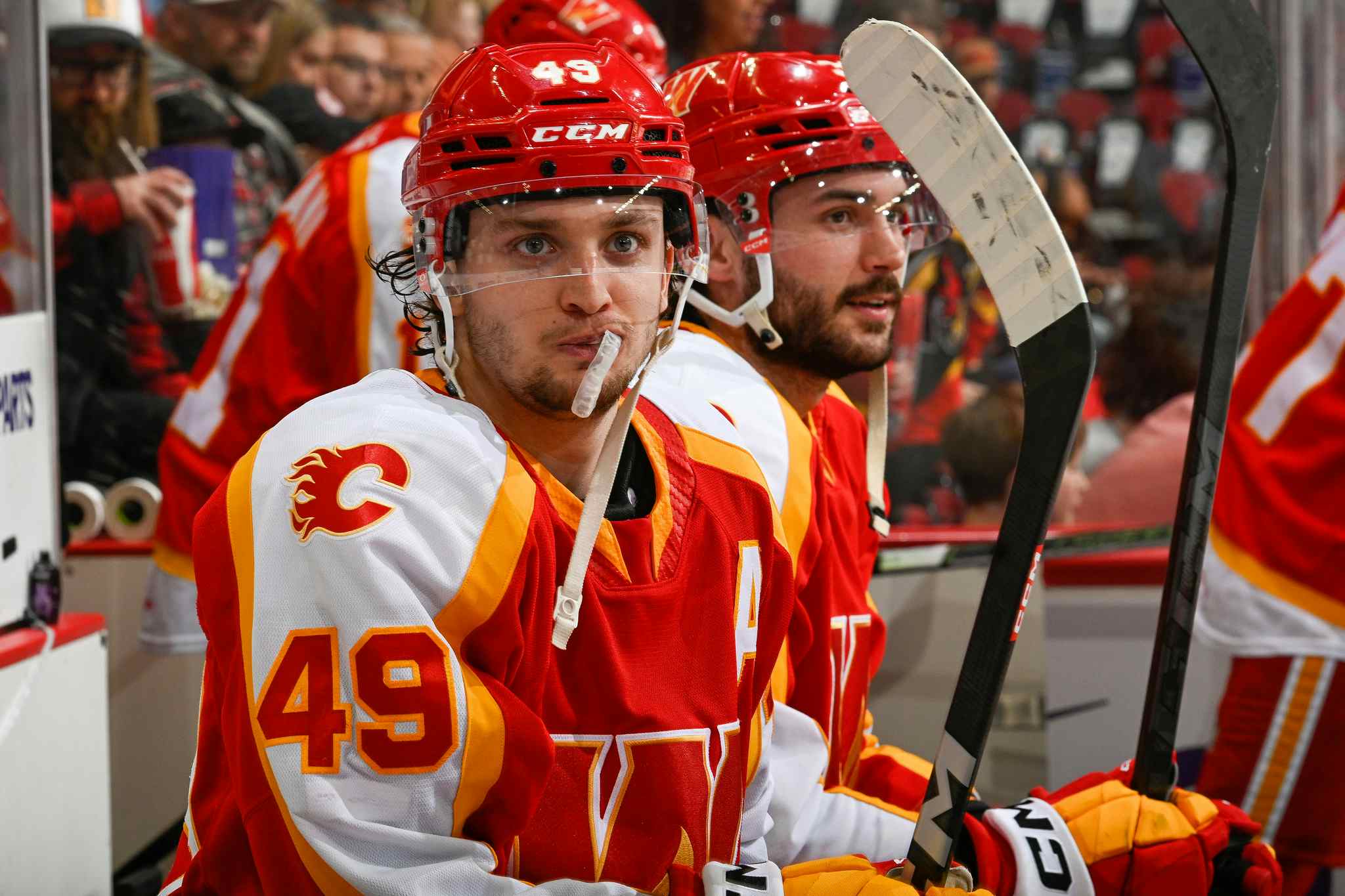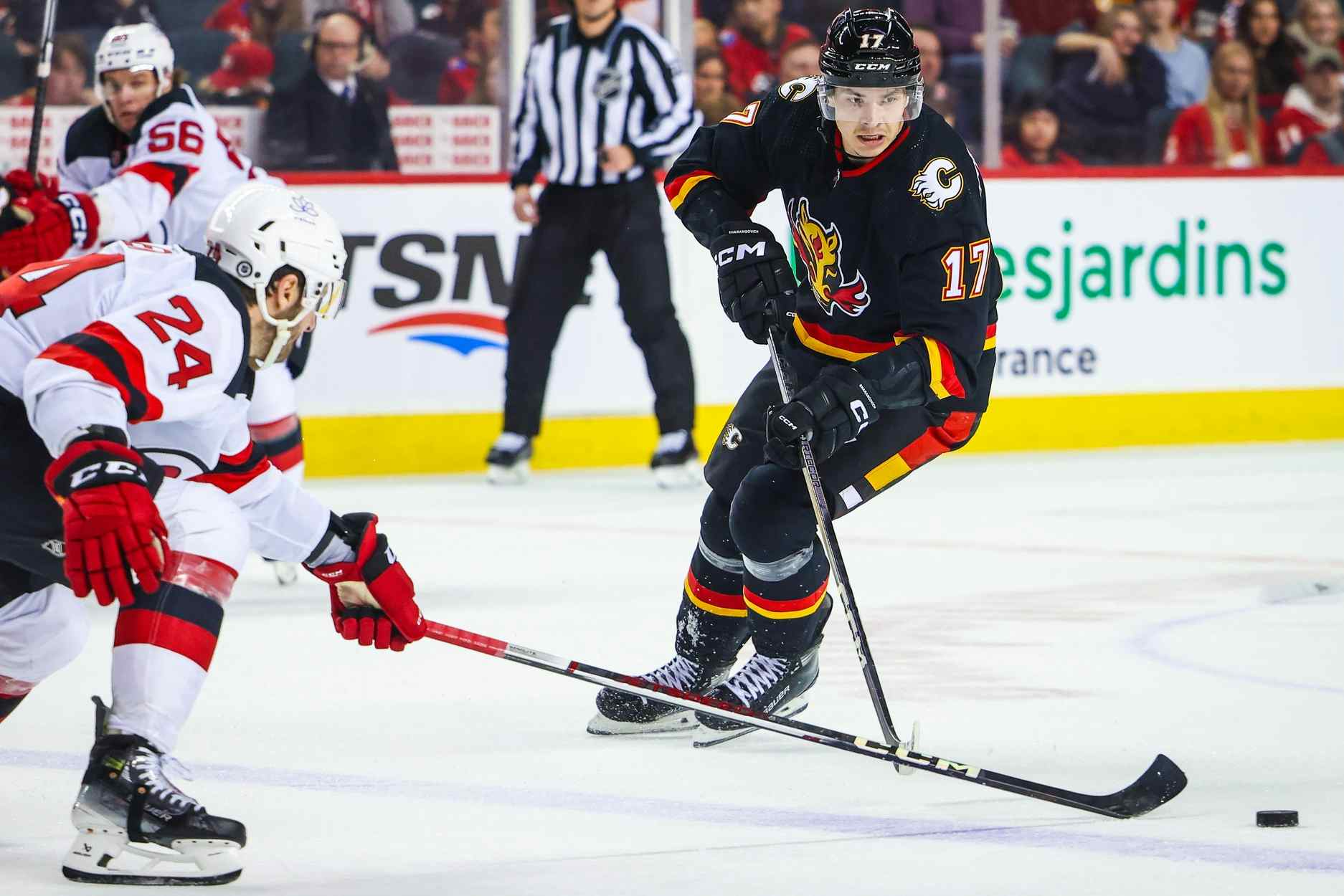Flames’ deadline a realistic assessment of present team – and its potential for the future

By Ari Yanover
5 years agoWho expected the Flames to get this far?
Go back in time to October. You’re excited for a new season, but you also remember how the previous one ended – a team that was supposed to at least make the playoffs, that was starting to go all in, completely crumbled and made sure watching them a miserable chore – and you’re wary. And then the Flames lose their season opener in the exact same style they’d lost many games at the end of 2017-18.
But they win their home opener, at least, and are able to crawl out to a modest 5-5 record. You roll your eyes: here we go again, mediocrity on the horizon, a team that will never be able to make it over the hump. They won’t lose every game 9-1 like they just did, but the cracks are showing. Is there even a chance they make the playoffs this year?
But then the Flames start winning. And they don’t stop. And a month and a half later, they’re first in the Western Conference. And they just stay there.
When the Flames had a 5-5 record through the first 10 games of the season, did it even occur to you that the Flames could be the best team in the West? That they would go into the trade deadline in that very position – not with a comfortable lead, but a pretty modest one, all things considered, with only one team necessary to scoreboard watch?
Probably not. So why has anything changed since then?
Staying the course
The Flames did not do anything at the deadline. Their most prominent issues were probably goaltending being a question mark and the want for another high-end forward; not only did the Flames not address either issue, but all they did was trade for a depth defenceman in Oscar Fantenberg. That isn’t really much of anything.
And when you see teams around the Flames loading up – the Sharks got Gustav Nyquist, the Golden Knights got Mark Stone (!!), and the Predators and Jets made a couple of moves as well – then it’s only natural to feel disappointed. The Flames aren’t the Lightning. They aren’t so comically superior, so far ahead of the pack that they don’t have to do anything to improve. The last 20 games of the season will not be like the first 62 – not when everyone else vying for the top spot in the West just tried to make themselves better and the Flames did nothing.
To which I’ll emphasize: were the Flames ever really supposed to be the first place team in the Western Conference? Were they supposed to be this good this season?
Of course, you hope they can keep ahold of that standing. But it’s not the goal for this year. It never was. The Flames probably could have gotten Stone, at least as a rental, if they’d been willing to ship out Juuso Valimaki. That could have put them over the top for this year (a year in which “over the top” probably means “can compete with the Lightning”), but completely disrupt future plans – both in terms of Stone’s new cap hit blowing up the Flames’ salary structure, and in not having Valimaki anymore.
And if the Flames didn’t think they’d be Cup contenders this year – and why would they have? Who saw Elias Lindholm having a career year halfway through the season? Who saw all three of the Flames’ rookie defencemen ready to play in the NHL all at once? Who saw the fourth line develop into a scoring threat, who saw David Rittich being near the top of league-wide save percentage for the first few months of taking the starter’s job? – then why would they suddenly think that’s changed, that they’re further along than they are?
No precedent
Brad Treliving took over for the 2014-15 season, a year in which the Flames overachieved and made the second round of the playoffs. This was largely in part due to a bonkers shooting percentage that they were not going to be able to replicate. A lesser general manager would have stepped into that season, dusted his hands and said, “We’ve arrived.” Nope – Treliving sold at the trade deadline, even though his team was in a playoff position, and spent the offseason adding players like Dougie Hamilton and Michael Frolik because the Flames weren’t even remotely close to good enough. It’s additions like those that have allowed the Flames to be where they are today: a team that recognized where it truly was, not where a potentially misleading standings placement said they were, and stuck to a plan to develop long-term success.
Why change that now?
Presumably, if the Flames didn’t think they would be Cup contenders this year, then they would still be planning for a future season in which they are. That should not have changed, and judging by the Flames’ deadline activity, it has not. Which is exactly the right move, especially when you take into account everything they’ve already done to build this team.
The most glaring example is the Travis Hamonic trade: out went a first round pick and two seconds, which has certainly played its part in the prospect pool looking a little lacking (that and the team being relatively young because all of those prominent prospects just jumped right into the NHL). That move was not made in a vacuum: it was made with the clear intention of bettering the Flames’ defensive group. It took some time, but it has done just that, even though it’s cost them dearly in another area of building a team.
To have dealt Valimaki as part of a package for Stone would have disrupted that even further. It doesn’t fit the plan. And the plan’s gotten the Flames this far. Throwing it out for a team that’s first in the West now but by no means is guaranteed to finish in that spot – nobody remembers who was leading the standings through most of the season, you only remember who actually finished the season on top – could have been disastrous not for this season, but for next. And the season after that. And the season after that…
This is not the year the Flames have to go big or go home. The only trade that really stings is Nyquist, because he would have been a good fit at a perfectly affordable price. Everything else is very easy to understand why the Flames passed. Yeah, maybe they’re blowing it – maybe Mark Giordano won’t be a Norris-caliber defenceman next season (though they do have four options all 22 years old and younger), maybe they won’t have four forwards all scoring at or above a point-per-game pace again (speaking of which, where’d that scoring go, anyway?) – but blowing up the potential for years of future success down the line for one season is impulsive and foolhardy.
What now?
The Flames added one depth defenceman. That gives them more than a full slate of forwards who won’t look out of place in an NHL lineup (the worst guys are who, Curtis Lazar? Garnet Hathaway? Austin Czarnik? You’re doing pretty great if those are your worst forwards), and they’re now at 10 defencemen – seven of whom have high-end potential – to hold down the fort. Yes, other teams got better, but dang, this is still a pretty great team, too.
The Flames have a modest lead for the Pacific Division crown, which they’re going to have to aim to keep. If they can defeat a wild card team and then face whoever emerges victorious between the Sharks and Golden Knights – a battle that could cost them come the next round (last year, the Golden Knights got a pretty decent deal, waiting for the Jets and Predators to finish beating up on each other before taking down the Jets), then they very well might stay in good standing through the playoffs. The Flames have given themselves a modest lead that it’s entirely realistic they stay in first, even with their opponents’ upgrades.
And if their gambit doesn’t work, and they lose early in the playoffs, well… then they lose early in the playoffs. It happens. It could happen even if they’d traded for Stone. Look at the Sharks: they have given up a lot of assets to build a formidable team, and their starting goaltender has a season save percentage of 0.897%. Even the Sharks are at risk of having absolutely nothing to show for everything they’ve done.
It’s just that right now it’s time for the Flames to show patience. So they have. If they lose out early, then they’ll live to fight on next season as well; Treliving’s biggest moves have always come at the draft, anyway, so his big acquisition can spend the entire season with the team from the start. And if they win late, then well… they win late.
This season has been gravy. That doesn’t mean you base your entire meal out of gravy – it means you appreciate it for the additional joy it’s brought, while recognizing there’s a lot more going on.
The Flames’ play this season has set themselves up for an entertaining present. Their restraint at the deadline has probably set them up for an entertaining future, too.
Recent articles from Ari Yanover





